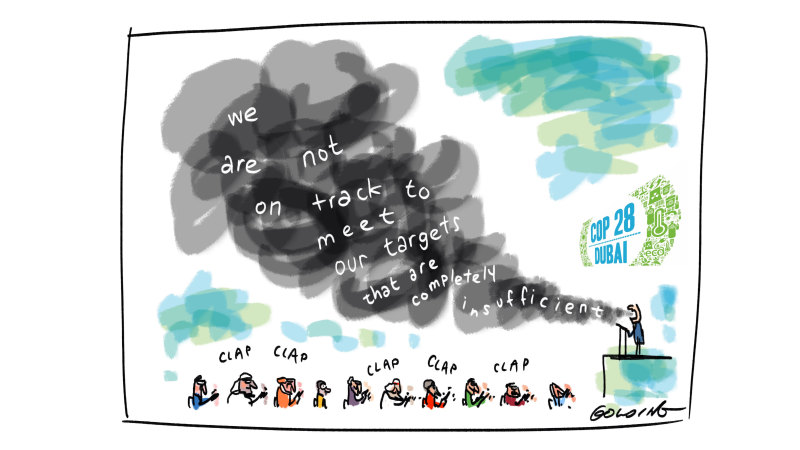Save articles for later
Add articles to your saved list and come back to them any time.
Matt GoldingCredit: .
To submit a letter to The Age, email [email protected]. Please include your home address and telephone number. No attachments, please include your letter in the body of the email. See here for our rules and tips on getting your letter published.
A wish for the dying
I was phoned recently by a good friend who asked if I knew the phone number of the care navigators for people wanting information about voluntary assisted dying. I did, as I had experience of the services, and I gave him the phone number. He was suffering badly with pain and nausea caused by pancreatic cancer and had been told he had less than a few weeks to live.
He phoned the Voluntary Assisted Dying Care Navigators, who are very empathetic nurses, and was given the phone number of a medical practitioner who helped my friend find a more comfortable death than he would have otherwise experienced.
If voluntary assisted dying advice cannot legally be given by telephone, these phone calls may have been illegal.
Suicide involves a choice between life and death whereas for patients considering voluntary assisted dying, the choice is only between a more pleasant or a less pleasant death, and life is not an option. It’s urgent that the federal government exclude voluntary assisted dying advice from its law prohibiting the giving of suicide advice by telephone.
Name and address supplied
Clarify suicide meaning
I am 72 and was diagnosed with an incurable stage 4 cancer four years ago and have had continuous treatments since.
At the time of my diagnosis, I determined to learn all I could in regard to the Victorian voluntary assisted dying legislation that hopefully would permit and assist my choice to die with dignity.
I do not advocate for voluntary assisted dying as a replacement for therapeutic care or palliative treatments but I do strongly support end-of-life choice.
The Federal Court ruling around the Commonwealth’s legal responsibilities has highlighted an urgent need to define the meaning of “suicide” for the purposes of voluntary assisted dying.
I (and many others) await this clarification in order that the states’ sensible, compassionate and overwhelmingly supported voluntary assisted dying provisions can be fully provided to those who can make this choice.
Mark Bennett, Manifold Heights
Student behaviour
I have worked in special needs schools for more than a decade, where the teaching of appropriate behaviour and the modelling of positive relationships is the norm. It’s great that mainstream schools have been recommended to teach students how to conduct themselves (″Time to teach students how to behave: Senate report″, 2/12).
The insertion of special needs programs into mainstream schools is belated recognition that lockdowns, global heating anxiety, and domestic violence have damaged students.
Special needs schools put the same importance on teaching appropriate behaviour as academic curriculum, and adjustments are made yearly to ensure both are given equal weighting. If similar adjustments aren’t made in mainstream schools, teaching appropriate behaviour in classrooms will be a burden to already overwhelmed teachers and will be sacrificed to NAPLAN preparation and educational outcomes box-ticking.
Rohan Wightman, Muckleford
Don’t follow the elders
The Senate report on teaching students how to behave is laughable. Watch parliament on television and see the appalling behaviour of the members of parliament. If my children or grandchildren behaved in this way, there would be consequences.
Christine Hammett, Richmond
Survey the Senate
In relation to the Senate report, did anyone actually speak to anyone in education? The strategies mentioned aren’t rocket science, nor are they new.
Entrenched social disadvantage barely rates a mention. The capacity of an ″elite″ school to address disruptive behaviour is markedly different to a public school. Furthermore, neither school system would tolerate some of the behaviour we have witnessed in parliament. Time for a behaviour survey on the Senate and see how that goes down.
Rosslyn Jennings,
North Melbourne
Parents, step up
What a sad indictment of parents that a Senate committee believes it is now necessary for schools to take responsibility for teaching children how to behave politely.
Sad, but not surprising, though given that so many so-called ″adults″ show little concern for anyone except themselves – evidenced by their behaviour during the worst of the pandemic and more recently in the referendum and during current cost-of-living pressures.
The government is supposed to fix everything, it seems.
Richard Jamonts, Williamstown
The good spy
Arriving home last week from the supermarket, I realised I had left a tablecloth I had paid for behind. When I went back to inquire two days later (without a receipt), the manager asked when I had made the purchase and which self-service check-out I had used.
She then checked the CCTV camera and told me that it showed me paying for the tablecloth and leaving it behind. I was duly reimbursed. If, indeed, we are being ″spied upon″ at supermarkets (″How supermarkets are spying on you″, 2/12), well, there are advantages.
Mandy Morgan, Malvern
Science is truth
Your correspondent (Letters, 2/12) captures the heart of the environmental debate with her sentence: “No one can succeed at cheating the science or the planet.”
These words should be emblazoned above every stage at COP28.
Chris Young, Surrey Hills
Fuelling a party
Matt Golding’s cartoon (2/12) shows the climate-change train is coming but my view is that we are having a fossil-fuelled party on that railway line of our own free will. It is to be hoped that the glitzy COP28 will not be a cop-out on delivering the change needed after so many years of obfuscation.
Robert Brown, Camberwell
Return the Marbles
What could really be a ″moral victory″ for England? Returning the Parthenon Marbles to Greece. Keeping them is just not cricket.
Glenda Johnston, Queenscliff
Most Viewed in National
From our partners
Source: Read Full Article

